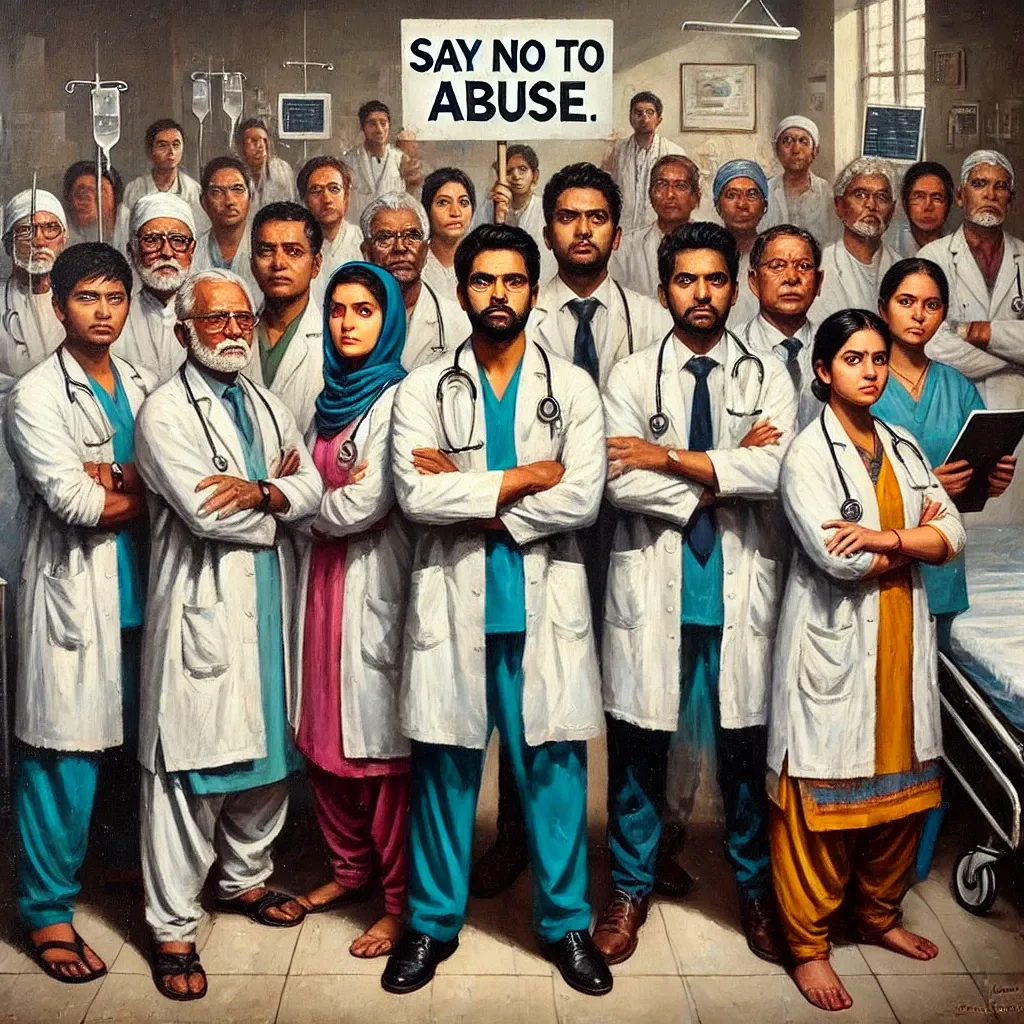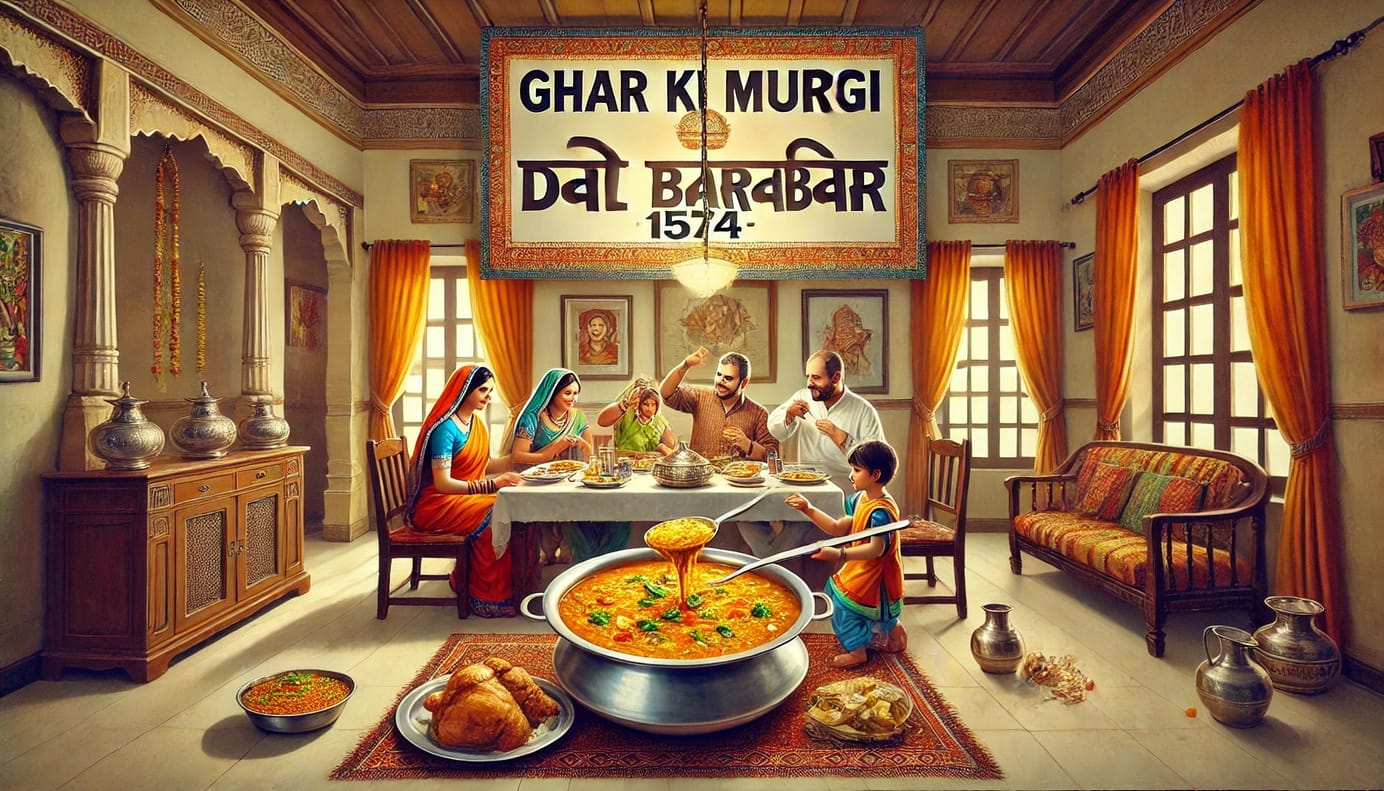
Fighting Abuse
No abuse is acceptable and we must fight back.
Audio
Text
A decade or two ago, one of the first times that a video of a doctor being beaten up was circulated via MMS, it caused an extreme reaction within the fraternity, leading to strikes and calls for improved security, and penal provisions against abusers.
The last doctor abuse video I saw a couple of weeks ago, was of a neurosurgeon being beaten by a relative, with other staff members doing nothing to help. I watched it, shook my head and moved on. It’s like these videos have normalized the violence and abuse doctors face...not much happens afterwards except for some local protests...until the next heinous crime or abuse completely shakes us out of our complacency.
What happened to Moumita in Kolkata is indescribable and unacceptable and those involved must be caught and punished immediately, including anyone up the chain...otherwise it will be just the usual rubbish.
All abuse is abuse.
- Like the passive-aggressive patients who shout at the front desk and everyone else, sometimes even at you.
- Like journalists and newspapers that besmirch a doctor’s reputation without understanding the complexities of the clinical problem.
- Like cops who are happy to arrest doctors at the slightest provocation, something that has luckily stopped in most parts of the country, thanks to the Supreme Court.
- Like the Govt and ministers, who constantly say doctors are corrupt, the system inefficient, and everyone needs to be pulled up if we want to get healthier…words that eventually work their way into peoples minds.
- Like shows like Satyameva Jayate, which may have started the escalation of violence, seeding the belief that doctors are corrupt until proven otherwise.
Abuse usually starts in residency and continues until retirement or death, unless you are in a patient-free specialty or job. Even now, when I hear a patient’s loud voice outside my office, or if there is an adverse reaction or complication, I worry it might escalate to violence, causing harm to people and equipment. It only takes one person to start yelling and abusing for the situation to spiral out of control.
It’s not just abuse from patients and relatives, it’s also from other doctors and the system.
- Like the senior professors in Mumbai colleges, who don’t sign off on theses or allow resident doctors to operate unless they buy them phones and other expensive gadgets, and pay for meals and chai-paani. Some also ask for sexual favors. These professors are a minority, but everyone knows who they are and what they’re doing, and by staying silent, their colleagues are also complicit.
- Like the senior doctors (now dead) who threatened me when I started my practice, saying if I did not do what they asked me to do, they’d ensure I wouldn’t get patients and would destroy my practice.
People come to us when they’re sick because they have no choice. But when things go wrong, they erupt into violence when outcomes don’t match expectations.
What can we do? Yes, there are systemic failures to address, as the “gyaanis” write in editorials. But we need to protect ourselves at work.
I have a few suggestions.
- Anticipate violence when there is sudden death or when there are too many relatives, or when one of the relatives seems to be out of control. Don’t face them alone without many others (doctors, nurses, ward-boys, interns) around you.
- Refuse to see patients if there are more than 3-4 relatives or friends hanging around. Insist they leave before seeing the patient.
- If a patient’s relative shouts, walk away. Don’t accept verbal abuse. Period.
- If there’s violence and there are more than 5-10 people, run like hell, preferably straight into a police station.
- If there are fewer people, then fight back. Use pepper spray and/or any nearby object to defend yourself.
- There should be a system to alert all doctors and staff to drop everything and come to the rescue of someone being attacked...some kind of Code Red system. If we can do this with cardiac arrests, we can surely do this with violence.
- If you are a senior doctor, then support your residents and juniors when they complain about abuse. Don’t walk away or castigate, and don’t be the abuser.
The Mahabharata says “Ahimsa Paramo Dharma”, but also acknowledges that violence may be unavoidable. As doctors,we’re taught to “do no harm,” but it should actually be “do no harm, as long as no harm is done to you.” We have to protect ourselves. Like the analogy of the oxygen mask on an aircraft, we must first care for ourselves to be able to care for others.
Later in life, when we move to private practice and/or hospitals with better security, we still need to be careful, even if physical violence may be rarer.
- Refuse to talk to patients who raise their voices. Demand they calm down or walk away. Video record and document.
- Support your colleagues in similar situations. Avoid second-guessing or criticizing their actions when faced with abusive patients.
- Be ready to let patients go to other doctors or hospitals at the first sign of trouble. Sometimes we have to subdue our egos and say we’re not good enough for a procedure and recommend another name or hospital. If money-focused administrators insist that you still manage the patient, say it’s too complex for your skills.
It’s not easy. Fear of being held back by professors, unsigned theses, job insecurity in private hospitals, and losing patients in private practice make us vulnerable to abuse and abusers. Situations like the one in Kolkata, a premeditated crime are even worse because Moumita had no way to escape.
Nothing we say or do is going to bring her back. But perhaps we can prevent similar incidents from happening to others.
We need to start somewhere. No one should accept abuse. Resident associations like MARD or FORDA need to ensure that in every college and hospital, residents can support each other and have safe measures in place, instead of just striking after incidents…when leaders leave after finishing their residency, continuity and follow-up on promised actions are lost.

We must learn to fight back, not take abuse from patients, senior doctors, administrators, politicians, or anyone who thinks they can bloody walk over us. It’s not easy, but nothing is. And in the end, if nothing works, consider leaving medicine or the country for safer pastures, regardless of the effort and money you may have sunk in earlier.
Bhavin's Writings Newsletter
Join the newsletter to receive the latest updates in your inbox.




